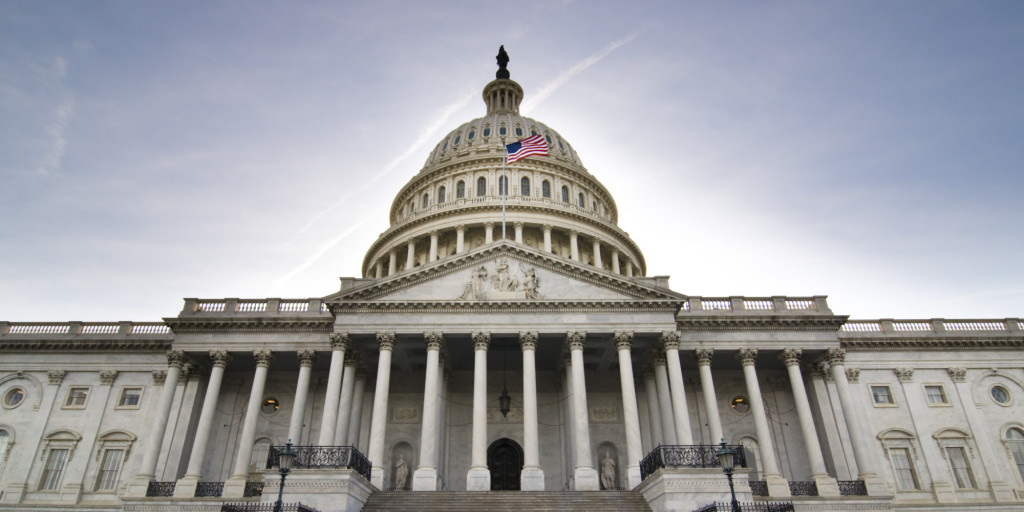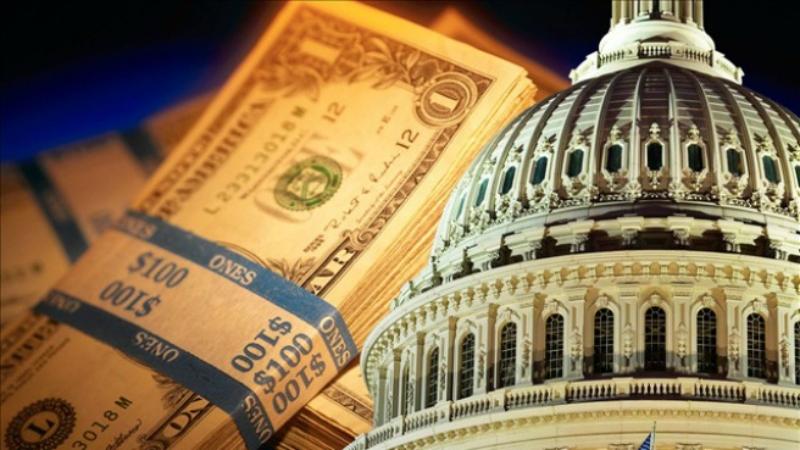Doug Jones makes bipartisan request of GAO to investigate exclusions for Trump’s tariffs

As part of bipartisan trio of senators on Monday, Alabama U.S. Sen. Doug Jones called on the Government Accountability Office to formally investigate the Trump administration’s tariff exemption process in relation to the blanket import tariffs on steel and aluminum that went into effect this spring. According to the Senators, the Commerce Department exclusion process for the Trump Administration’s tariffs on steel and aluminum has generated a large backlog of petitions and has placed significant burdens on American businesses. The 25-percent tariffs on steel and 10-percent tariffs on aluminum were the result of a section 232 investigation that examined whether these imports were a threat to U.S. national security. “As a result of the section 232 actions, U.S. trading partners have levied retaliatory tariffs on billions of dollars of American exports. In addition, several countries, including U.S. allies like Canada, Mexico, and the European Union (EU), have filed disputes against the United States using the World Trade Organization (WTO) dispute mechanism,” the senators wrote. They continued, “Members of Congress and U.S. businesses have repeatedly raised concerns about the pace, transparency, and fairness of the section 232 steel and aluminum exclusion process. For example, the Senate Finance Committee and industry groups have called on Commerce to clarify the criteria it uses to determine whether to grant an exclusion from the tariffs. In July 2018, at a House Ways and Means subcommittee hearing, businesses vocalized concerns about the backlog of exclusion applications and the challenges small businesses have faced in accessing adequate resources to navigate the exclusion process.” By the end of October, Commerce had received 49,301 exclusion petitions (including resubmissions) and had issued decisions for just 16,567 (34 percent) of them. In their letter, the senators call for GAO to investigate key questions about the current process, including how to improve the pace of review, the cost to taxpayers, the amount of technical support provided to petitioners, and how exclusion approvals are determined. Read the full text of the letter below: November 26, 2018 The Honorable Gene L. Dodaro Comptroller General of the United States United States Government Accountability Office 441 G Street NW Washington, DC 20548 Dear Mr. Dodaro: We write today to request a review of the process by which the Department of Commerce (Commerce) has been granting tariff exclusion requests for steel and aluminum imports that would otherwise be subject to additional duties under section 232 of the Trade Expansion Act of 1962. In April 2017, the Secretary of Commerce initiated a section 232 investigation to examine whether steel and aluminum imports impair U.S. national security. On the basis of a positive determination from this investigation, President Trump invoked his authority under section 232 to proclaim 25% tariffs on steel imports and 10% tariffs on aluminum imports. These tariffs went into effect for most countries on March 23, 2018. Although Mexico and Canada were initially excluded from the tariffs, President Trump announced on May 31, 2018 that both countries would be included. In 2017, the U.S. imported approximately $29 billion in foreign steel and $17 billion in foreign aluminum. As a result of the section 232 actions, U.S. trading partners have levied retaliatory tariffs on billions of dollars of American exports. In addition, several countries, including U.S. allies like Canada, Mexico, and the European Union (EU), have filed disputes against the United States using the World Trade Organization (WTO) dispute mechanism. Since the tariffs went into effect, Commerce has been processing on a rolling basis thousands of petitions from U.S. importers of foreign steel and aluminum products seeking tariff relief. As of October 29, 2018, Commerce had received 49,301 exclusion petitions (including resubmissions), and had issued decisions in 16,567 cases (34%). Of these, 12,044 requests were approved and 4,523 were denied. In Congressional testimony on September 9, 2018, Commerce officials reported that the agency had redeployed staff from other Commerce offices and was in the process of hiring 55 contractors to handle the backlog of exclusion petitions. Members of Congress and U.S. businesses have repeatedly raised concerns about the pace, transparency, and fairness of the section 232 steel and aluminum exclusion process. For example, the Senate Finance Committee and industry groups have called on Commerce to clarify the criteria it uses to determine whether to grant an exclusion from the tariffs. In July 2018, at a House Ways and Means subcommittee hearing, businesses vocalized concerns about the backlog of exclusion applications and the challenges small businesses have faced in accessing adequate resources to navigate the exclusion process. To ensure that Congress has a better understanding of this issue and possible actions that the federal government can take to address it, we request that the Comptroller General initiate a review that evaluates the following questions: How has Commerce incorporated feedback from petitioners, members of Congress, and other stakeholders to develop and improve upon its exclusion process? What criteria does Commerce use to make a determination to approve or deny an exclusion petition? How does Commerce adjudicate rebuttals? What steps has Commerce taken to ensure the timely processing of exclusion petitions, including additional staffing and resources? What steps could Commerce take to improve the pace of its exclusion process? How has Commerce trained staff to properly evaluate petitions? What is the average amount of time Commerce takes to issue a decision on a petition? How does the rebuttal and surrebuttal process for opposition comments increase this timeline? What has been the cost to date of the 232 exclusion process, including the costs of increased staffing to evaluate petitions? How does Commerce ensure transparency and adequate communication with petitioners? How frequently does Commerce contact petitioners for additional information, if needed? How quickly does Commerce correct any mistakes in the administration of the exclusion petition process? What degree of technical support has Commerce provided to assist petitioners, particularly small businesses, in filing exclusion petitions? Please consider including recommendations for agency or congressional action in your evaluation. If you have any questions regarding this request, please contact Mark Libell (Jones) at 202-224-4124, Halie Craig (Toomey)
Study: Without Medicaid expansion, poor forgo medical care

Low-income people in states that haven’t expanded Medicaid are much more likely to forgo needed medical care than the poor in other states, according to a government report released Monday amid election debates from Georgia to Utah over coverage for the needy. The nonpartisan Government Accountability Office worked with the National Center for Health Statistics to analyze federal survey data from 2016. The research focused on low-income adults ages 19-64 in states that did not expand Medicaid under the Obama-era Affordable Care Act, compared to their peers in states that did. Medicaid expansion is an issue in several high-profile gubernatorial contests and in states where supporters have gotten referendum questions on the ballot. Under the law, states may expand Medicaid for low-income people making up to roughly $16,750 for an individual or $34,640 for a family of four. Seventeen states have not adopted the expansion, opposed by many — but not all — Republicans. Among the report’s findings: Nearly 20 percent of low-income people in states that did not expand Medicaid said they passed up needed medical care in the past 12 months because they couldn’t afford it. That compared to 9.4 percent in states that expanded the program. About 8 percent of those in states that did not expand Medicaid reported they either skipped medication doses to save money or took less medication than prescribed. That compared to about 5 percent in states that expanded. For people with chronic conditions such as high blood pressure, diabetes and asthma, staying on a medication schedule is considered essential. About 22 percent of those in states not expanding Medicaid said they needed but could not afford dental care, as compared to 15 percent of similar low-income adults in expansion states. About 11 percent of those in non-expansion states said they needed to see a specialist but weren’t able to afford it, as compared to about 6 percent of those in expansion states. “States around the country have an opportunity to expand Medicaid to more people; these findings help show why it’s a winning proposition for states and the millions of Americans currently left out,” said Sen. Ron Wyden, D-Ore., who requested the analysis. Aides to Wyden said the 70-page report is the most detailed look yet at real-world differences that Medicaid expansion can make. In states that did not expand Medicaid, low-income adults are more likely to be uninsured. Medicaid is a federal-state program that has grown to cover about 1 in 5 U.S. residents, from many newborns to severely disabled people to elderly nursing home residents. Its total cost is about $570 billion a year. Former President Barack Obama’s health care law expanded Medicaid to allow states to cover low-income adults with no children living at home. On Election Day, voters in Idaho, Nebraska and Utah will decide whether their states should expand the program. Montana voters will decide on maintaining that state’s expansion. Expansion also is an issue in gubernatorial races in Florida, Georgia and Wisconsin, which have not expanded Medicaid. With the federal government covering at least 90 percent of the cost, expansion proponents argue states turning it down are leaving on the table tax dollars their own citizens send to Washington. Backers include hospital systems and health insurers, and many local business groups. Opponents contend that the cost is still too high for states, which have other major financial responsibilities for health care, education, infrastructure and law enforcement, and must balance their budgets. President Donald Trump‘s administration is strongly opposed to Medicaid expansion and tried unsuccessfully to repeal it during Trump’s first year. Medicare and Medicaid administrator Seema Verma argues that Medicaid was originally intended as a safety-net program for the most vulnerable in society and covering able-bodied adults is beyond its scope. Verma is encouraging states to set work requirements for Medicaid, contending that will encourage people to earn their way out of poverty and dependence on government insurance. Supporters of Medicaid expansion say the argument for the program is getting stronger. “It’s the same as we’ve seen more broadly with the ACA,” said Judy Solomon of the Center on Budget and Policy Priorities, which advocates for low-income people. “It’s here to stay and states that haven’t been able to get it over the finish line are questioning themselves.” Republished with permission from the Associated Press.
Daniel Sutter: Who are we taxing?

The Senate passed a tax bill last weekend. The details must be ironed out in conference negotiations with the House, but the plan includes a corporate income tax overhaul. This was a campaign promise of President Donald Trump, and is long overdue. The corporate income tax does not apply to all businesses, only those organized as corporations, which include most recognizable national businesses. Washington currently taxes corporate income above a modest threshold at 35 percent, the highest rate of any developed nation. The top rate will fall to 20 percent, in line with other countries. Our rate is high now in part because we are one of three developed nations not to have cut corporate taxes since 2000. The U.S. also currently taxes profits earned by the international subsidiaries of American firms, as opposed to just domestic earnings. The 35 percent rate, less any taxes paid to another nation, essentially applies to all earnings everywhere. The Senate bill would end worldwide taxation. The corporate income tax affects many business decisions. The tax has fueled corporate inversions, which is when an American company reincorporates in another nation. Burger King and Fruit of the Loom, for instance, have renounced their American corporate citizenship. Inversions are for tax purposes and do not move all operations or even the headquarters overseas, but are still troubling. American companies also keep significant earnings overseas, perhaps as much as $2.6 trillion, to avoid our taxes. The Senate bill allows repatriation of these profits with payment of a 14 percent tax. Lowering our top rate and ending worldwide taxation should end this problem. Few companies, though, pay the full corporate tax. The Government Accountability Office found that around 70 percent of all corporations – and 20 percent of the most profitable – pay no corporate tax in a typical year, due to tax breaks. The corporate tax has raised about 10 percent of Federal tax revenue since the 1980s, versus 30 percent in the early 1950s. We do not really rely on the corporate income tax to fund Washington. Modest revenue generation does not imply no harm to our economy. The tax particularly impacts companies unable to secure breaks from Congress. And when CEOs focus on avoiding corporate taxes, they are less likely to improve their products and services or lower costs. A focus on avoiding taxes slows economic growth. Many Americans, I think, still like the idea of making rich corporations pay. Only the corporate tax does not ensure this. Taxes often get shifted, meaning that the people sending a check to the government may not really pay the taxes. Consider the example of gas taxes, which gas stations “pay.” Higher taxes generally increase the pump price, effectively passing on some of the tax to drivers. The potential for tax shifting makes the analysis of who really pays taxes relevant and challenging. Appearances can be deceiving, and politicians count on this with corporate taxes. As Nobel Prize winning economist Joseph Stiglitz writes in a textbook, “Politicians like to give the impression to voters that someone else pays the corporate tax. But the reality is that households, workers, consumers, and investors pay the tax, just as they pay any other tax.” Economists are unsure who really pays the corporate tax, partly because the answer depends on many factors. Candidates include a corporation’s customers, its workers, and investors across the economy. Even if the owners pay, which is likely at least in part, not all stockholders are rich. Many Americans own stocks through pension plans. I personally believe that we should keep taxes and spending low. When we tax ourselves, I think that we should use taxes with clearly understood incidence. This makes the burden of government transparent, encouraging informed decisions by citizens. The corporate income tax fares poorly in this regard. The tax today is like a con game, one riddled with exemptions for privileged firms. Reform is long overdue. ••• Daniel Sutter is the Charles G. Koch Professor of Economics with the Manuel H. Johnson Center for Political Economy at Troy University and host of Econversations on TrojanVision. The opinions expressed in this column are the author’s and do not necessarily reflect the views of Troy University.


